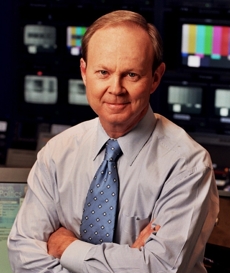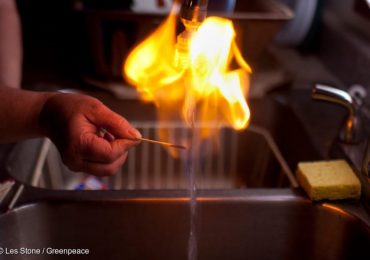By MIKE MAGEE
This past month Bishop Mariann E. Budde drew the Episcopal Church into the national spotlight through a single act of courage. She is not the first, nor likely the last from this denomination to do so. There is a history. More on that in a moment.
The Episcopal church is an offshoot of the Anglican Church of England which dates back to 1534 when King Henry VIII broke with the Catholic Pope who opposed his marriage to Anne Boleyn. Two-hundred and fifty four years later, in 1789, Anglican Church leaders who had helped settle colonies in North America, gathered to form a united Episcopal Church, revising their Book of Common Prayer to exclude its blessing to the English monarch.
Though declining in modern times, missionary minded Anglicans spread throughout the British empire and remain connected to the mother Church as members of the Anglican Communion. For example, British Anglican military chaplains were part of the force that occupied Cape Colony in South Africa in 1795. By 1821, they had established a formal religious foothold. Today, they claim 3.5 million members. In 2012, they elected their first female bishop, Ellinah Wamukoya of Swaziland. And yet, arguably the most influential female Anglican from South Africa is an immigrant to America, an emotional ally of Bishop Budde, and a retired Chief Justice of the Massachusetts Supreme Court.
Her name is Margaret Marshall, and her place in American history dates back to June 6, 1966. That was the date this then 20 year old student, who was vice-president of the National Union of South African Students, was asked to stand in for the organization’s president, Ian Robertson (who was under house arrest for speaking out about Apartheid). She met and transported Bobby Kennedy to speak to over 1000 university students packed into the college auditorium at their “Day of Affirmation.”
Much like Mariann Budde last week in Washington, Bobby Kennedy caught his hushed audience by surprise that evening with these opening remarks:
“I come here this evening because of my deep interest and affection for a land settled by the Dutch in the mid-seventeenth century, then taken over by the British, and at last independent; a land in which the native inhabitants were at first subdued, but relations with whom remain a problem to this day; a land which defined itself on a hostile frontier; a land which has tamed rich natural resources through the energetic application of modern technology; a land which was once the importer of slaves, and now must struggle to wipe out the last traces of that former bondage. I refer, of course, to the United States of America.”
Margaret Marshall, some six decades later, recalled that moment in a conversation with Doris Kearns Goodwin. She said, “There was great tension in the room. People were on edge…As soon as the audience realized what he said, there was laughter and a sense of total relief. It was simply fabulous.”
After becoming president of the student organization the next year, the Anglican woman raised in a religious home in Newcastle, South Africa, emigrated to the U.S., and earned a masters in education at Harvard, and a law degree from Yale in 1976. Two years later, she was awarded U.S. citizenship.
She carried with her to her new country a prior interest in the law, and specifically American Law. In an interview in 2020, around the time of her prestigious Sandra Day O’Connor Award for “extraordinary service and commitment to justice,” she recalled her favorite American law case as a South African student:
“The Massachusetts case, decided in 1783, was a case decided under the new, then very new, Massachusetts constitution, which predates the federal constitution. The Massachusetts constitution opens, or started at the time, with the words, ‘All men are created equal…’ The case was brought by a slave in Massachusetts who challenged his servitude under that provision. . . In 1783, the Supreme Judicial Court of Massachusetts ruled that slavery was inconsistent with the words of the new Massachusetts Constitution. That was the second case of which I knew while I was in South Africa. A court had outlawed slavery. For that reason, the Supreme Judicial Court had always been a revered institution for me.”
It is fitting, therefore, that 20 years after becoming a lawyer, Massachusetts Gov. William Weld appointed her an Associate Justice of that very same Massachusetts Supreme Court. Over the next fourteen years, she wrote more than 300 opinions, most notably Goodridge v. Department of Public Health. The decision affirmed that the Massachusetts Constitution prohibits the state from denying same-sex marriage. In an unspoken link to her childhood beginnings, she wrote, “Massachusetts Constitution affirms the dignity and equality of all individuals. It forbids the creation of second-class citizens.”
Three years after the decision, Chief Justice Marshall had an opportunity to reflect on the broader law and order implications of her ruling as Trump prepared to overthrow the 2020 election.
She stated on the Judgement Calls Podcast, “Judges are part of our the government. If the United States Supreme Court issues a decision, you can criticize it. Everybody can criticize it. The Massachusetts Governor criticized Goodridge. But the Governor never suggested that he would not obey the order…Think about Bush against Gore, which was one of the closest, most bitterly fought cases. The day after the court decided, was the court’s decision criticized? Of course, it was criticized. But…there were no troops out on the street. That is a privilege that we have in the United States. It is because I come from another country that I feel so passionately about what we have to protect here, what is so important here. But for me, an immigrant, for waves of immigrants, we know. We know.”
It is fair to say that this Anglican daughter of South Africa, who ushered Bobby Kennedy that evening in 1966 to a tense auditorium, exactly two years to the date before he would be assassinated in Los Angeles, has paved the way for another member of the Anglican Communion, Episcopalian Bishop Mariann E. Budde to exhibit her act of moral courage.
With intelligence and conviction, seven feet above and 40 feet across from a figure reminiscent of South Africa’s P.W. Botha, she locked eyes with President Trump. She stood tall and erect, buoyed by the Washington National Cathedral’s limestone Canterbury Pulpit, whose central carvings portray the signing of the eight century old Magna Carta, and addressed the man who would later charge that “She was nasty in tone, and not compelling or smart.”
But her words in our nation’s Capitol were as powerful that evening as Robert Kennedy’s in Capetown. With Margaret Marshall at his side, RFK said, “Each time a man stands up for an ideal, or acts to improve the lot of others, or strikes out against injustice, he sends forth a tiny ripple of hope, and crossing each other from a million different centers of energy and daring those ripples build a current which can sweep down the mightiest walls of oppression and resistance.”
Six decades later, these words of Bishop Budde created a flood of debate across America:
“Let me make one final plea, Mr. President: Millions have put their trust in you. And as you told the nation yesterday, you have felt the providential hand of a loving God.”
“In the name of our God, I ask you to have mercy upon the people in our country who are scared now. There are gay, lesbian and transgender children in Democratic, Republican and independent families, some who fear for their lives.”
“And the people, the people who pick our crops and clean our office buildings, who labor in poultry farms and meatpacking plants, who wash the dishes after we eat in restaurants and work the night shifts in hospitals, they — they may not be citizens or have the proper documentation, but the vast majority of immigrants are not criminals.”
“I ask you to have mercy, Mr. President, on those in our communities whose children fear that their parents will be taken away, and that you help those who are fleeing war zones and persecution in their own lands to find compassion and welcome here, Mr. President.”
Moral courage chooses its own time and place. But when it presents itself, it is recognizable by all – including those in agreement and those who stubbornly descent.
The final words from RFK enjoin each of us and all of us, across the ages:
“With a good conscience our only sure reward, with history the final judge of our deeds, let us go forth and lead the land we love, asking His blessing and His help, but knowing that here on earth God’s work must truly be our own.”
Mike Magee MD is a Medical Historian and regular contributor to THCB. He is the author of CODE BLUE: Inside America’s Medical Industrial Complex. (Grove/2020)
Leave a comment




